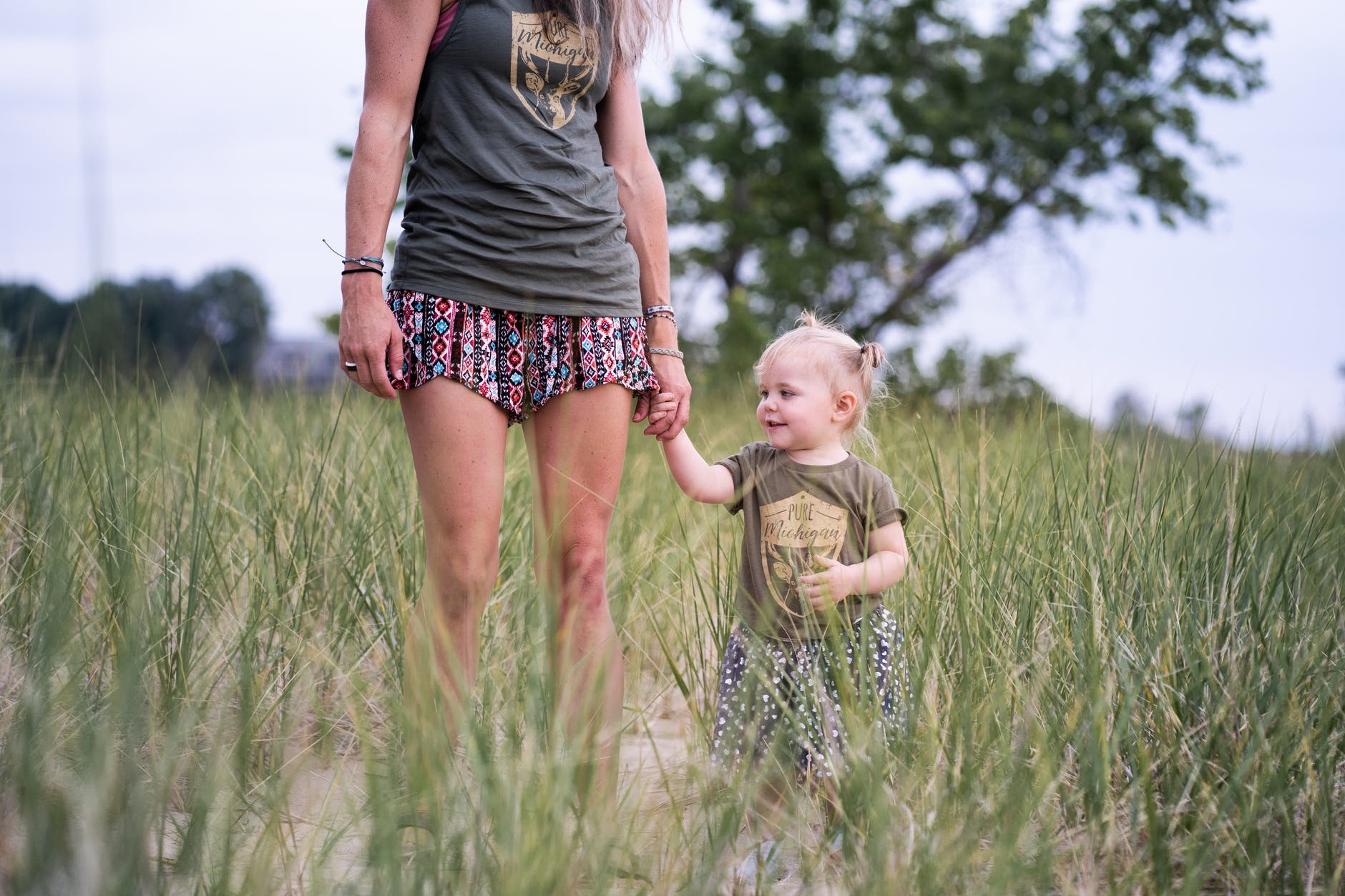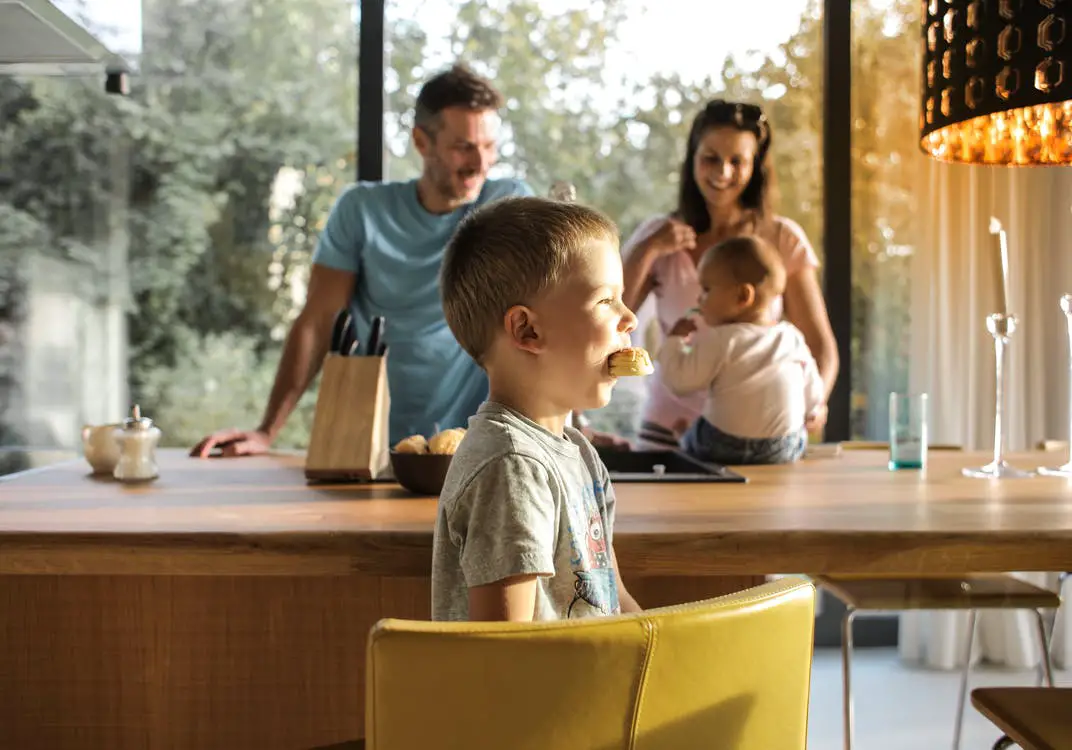On average, people spend more than fifteen years of their lives at home—before moving out and starting their own journey. In a sense, the first home people dwell in, particularly where they grow up, influences how they view life, react to change, and build relationships. So, how can positive family environment shape the life of children? Learn how having a positive family environment impacts lifelong habits and personalities when you read this article.
Table of Contents
The Growing Family

After couples decide to have kids, everything in the household adapts to the change. From dealing with dental health to choosing the right meals, parents have to determine the best things for their children. The task is never simple, and it doesn’t get easier over time. Nevertheless, it is a fulfilling achievement, especially for first-time dads and moms, to see the happiness in their child’s eyes.
According to Unicef, child development and early learning happen during the first five years of a person’s life. All the things the child learns at this time shape their “health, happiness, growth, development and learning achievement at school, in the family and community, and in life in general.” This early stage of life greatly affects how an individual will carry on with his or her life. During the formative years, the child absorbs different emotions, reactions, experiences, and attitudes. Hence, positive parenting and a supportive nuclear family play an essential role in the child’s growth.
What Exactly Is a Positive Family Environment?

Plants grow well if all external factors are present—the sun, water, air, fertilizer, and care from the owner. People are like plants; we need love, care, and other basic necessities to survive. In a simple explanation, a family environment is a distinctive interpersonal setting involving the family members of a particular household. This social environment includes the moral values, habits, behaviors, and coping mechanisms of the family. With the remarkable differences of families, no two have the same family environment.
Now, a positive family environment involves the constructive processes of the household when dealing with anxiety, stress, toxic situations, and social issues. This structure revolves around the practical and healthy family values embedded by the parents. A positive family environment hones a child to be a good citizen, an honest worker, and a resilient person. All in all, parents should have this social setting at home for the betterment of their children.
The Meaning of Communication in the Family

Communication strengthens any relationship. Whether it’s the bond between grandparents and their grandchildren or parents and their kids, communication links emotions and intention. With that, engagement within the family through means of better communication channels creates a positive family environment. But, does it affect the relationship between family members?
Yes, communication greatly affects the interaction between parents and kids. For instance, when kids make mistakes or misbehave, parents have to talk about the things the children did wrong. Through communicating properly, toddlers and parents build trust and respect. Recently, the University of Nebraska-Lincoln released an article about early childhood development which highlighted the breakdown of effective communication between parents and children. It states that nonverbal body language makes up 55%, voice and tone get 38%, and the conveyed words are 7% of how parents communicate with their kids. This proposed procedure helps improve how family members discuss important points about life, school, and work.
Knowing this, parents need to learn to be better at communicating with their children to avoid unnecessary fights, backlash, and misunderstandings. Even at a young age, parents need to strengthen ties and engage with their children.
Improve Communication and Have a Positive Family Environment
Truly, communication helps create a positive energy in the household, especially if it’s on a lighthearted tone. However, arguments and petty fights can still erupt between family members. To avoid and lessen these encounters, here are some of the best practices to enhance the communication processes of parents and their children.

- Learn the Value of Listening – Expressing what you need to say to your kids is crucial for them to understand your points. But as important as demonstrating your intentions, you also need to listen to your children’s perspective. Communication is a two-way method. Hence, listening also matters in all discussions.
- Never Interrupt Someone Talking – Even when you want to point out mistakes and misinformation, you have to wait for the person to finish talking first. Aside from showing respect through this gesture, you also hear the whole side of the person. For example, let your kids complete their explanation about the incident before you give your own opinion. In this way, you show how you understand the situation.
- Think of What You Want to Say – Don’t speak out when you’re angry. During this time, emotions are surging and you’re not thinking cohesively. You may talk ill about your children or confuse them with your intentions. And even when you’re not mad, you should think about what you want to say first before saying them out loud. One common parenting regret is speaking wrongly about situations without looking at the whole picture of the circumstance.
- Show Emotions and/or Feelings – Sometimes, people regard vulnerability as a sign of weakness. However, showing emotions is one way of exhibiting signs of care and humility. To communicate more effectively with your children, you have to continually show your feelings of affection, happiness and care for them. Expose enough feelings towards your children.
- Tackle One Issue at a Time – Don’t dump everything altogether and take on problems one by one. If you entertain all questions asked by your teenage daughter, it can be confusing. So, take time to handle the issues at home one at a time.
Building Respect in the Household

Talking is one thing, and building respect is another. When people discuss the aspects of respect, it becomes a perplexing idea. Moreover, respect has different forms and purposes. But it’s an essential quality that every person on this planet should learn and apply to their habits. Often times, respect is earned—even when in the family circle. So, what is respect and why is building one in the household essential?
Respect is an action of showing high regards and consideration for another person’s efforts, time, feelings, and decisions. In other words, respect is thinking about the emotional welfare of another person other than yourself. Children pay respect to their parents by listening to their warnings and advices. In turn, parents are respectful of their children’s decisions and choices in life. When both parents and children are considerate and mindful of their actions, it creates a positive family environment for everyone.
Teaching respect happens as young as two years old. According to psychotherapist Ingrid Schweiger, politeness and respectfulness should be learned as it helps children acknowledge that the “mutual exchange of give-and-take” is required in society. For instance, setting rules at home is a great way of integrating good behavior. Simple greeting phrases such as excuse me, thank you, you’re welcome, and good morning builds the positive attitude of children. Later on, these gestures can transform into stronger ties of being respectful towards others.
All About Quality Time

Apart from effectively communicating with kids and teaching them respect, parents have to utilize quality time. While mommy and daddy duties are still on the list, parents should spend at least one hour a day with their kids doing different activities. But, why does it matter? How can it affect the positive family environment that people talk about?
Well, quality time for family reassures children that they can talk to their parents about various subjects. It also brings members closer together, creating a bond that still applies even when the children are ready to leave the nest. While alone time is normal for parents and the kids, getting time for scrabble games, sudoku, or movie watching will cement the relationship between parents and children.
So, being close with parents brings positivity to children’s lives because there are no grudges and pent-up anger. Today, many adults face relationship issues due to old scars caused by disagreements with parents or siblings. Some people are afraid to start romantic ties for fears of encountering and becoming a dysfunctional family in the future. All these uncertainties can be traced to the family environment people grew up in. Despite these predicaments, individuals can still function to great people in the community.
Quality time matters for many families. And as early as now, parents need to be close to their children to imprint a life-long bond.
Why Positivity Within the Household Changes Everything

Everyone knows how constant anger and unhappiness destroys relationships. This unsettling and uncomfortable feeling affects everyone in the household and workplace. Additionally, it affects the organisation and productivity of people. For children living in a home full of negativity and unease, the experience can influence their outlook in life. According to a study conducted by the National Academies of Sciences, Engineering, and Medicine, “serious stress and adversity can have harmful effects on the growing brain and a child’s developmental progress.”
Stress can be observed in different situations. Under normal events, every person feels stressed out for a few minutes or hours. But if it continues to bother the life and activities of an individual, it can also affect the people around that particular person. In this case, a stressed-out parent can lash out their problems on their kids, which in turn can be traumatic. Furthermore, the hostile environment pushes children to have different views about life.
It goes to show that a positive family environment does not mean there are no arguments and misunderstandings which are normal in the household. Instead, a positive family environment looks at how a family deals with a situation in the proper and appropriate manner. It also highlights the values that will affect the decision-making processes of the child. These ethical mechanisms influence the outward behavior of the kids. That is why it’s crucial to have a positive family environment for growing children.
It’s Okay to Talk About It

When things are hard, it’s okay to talk about it. Parents can talk to their children about the difficulties at home. They don’t have to do it alone. When you talk to your kids, you become closer to them. You don’t have to burden them with all the problems, just explain small things to them. In this process, you show them your experiences as a parent. They might not understand everything, but they comprehend emotions. A simple hug from your daughter or son makes everything worthwhile.
If talking with your spouse is not enough to explain the trial, you can consult a doctor. They can help find the solution to your worries and lessen the burdens you carry inside. By admitting your personal issues, you can avoid inflicting pain to others, especially your children. This helps create the positive family environment that you aim to have.
Life is full of little surprises, some good and others difficult to process. The way people react to these sudden changes in their lives depends on their internal values and upbringing. Hence, creating that strong and empowered personality impacts the overall disposition of an individual. Your character and everything about you began at home; so, make your residence the best place in the world for your family.
